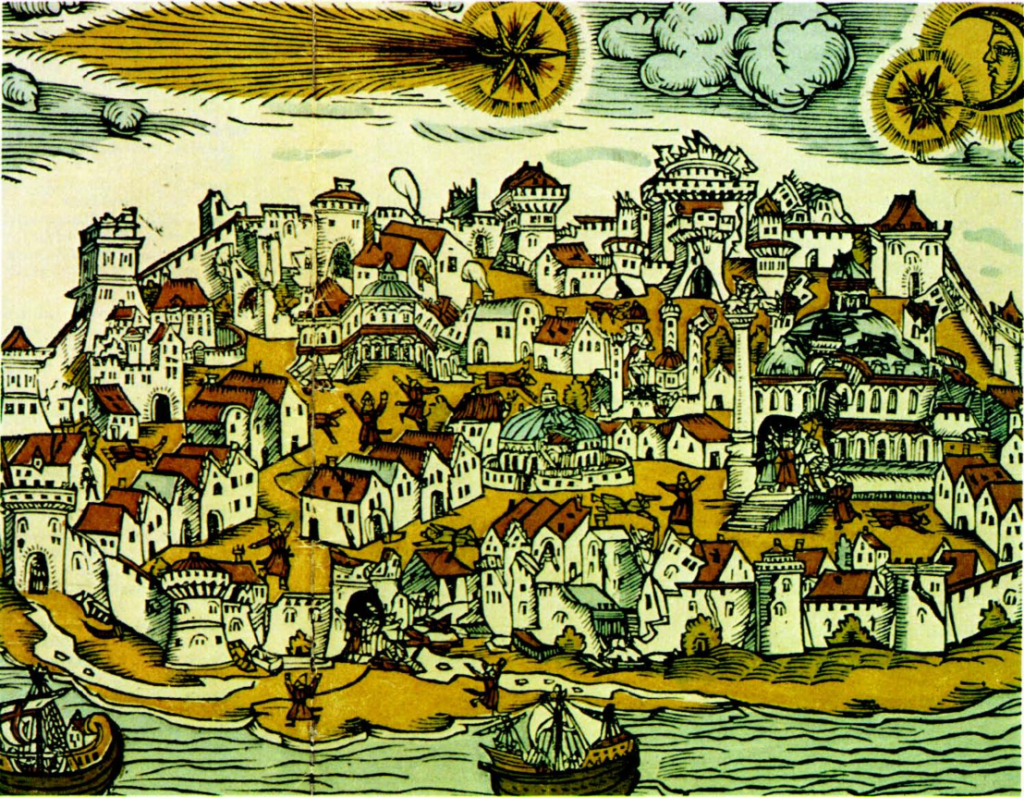CALL FOR PAPERS
Centre for Comparative Literature, Goldsmiths, University of London, in collaboration with the Society for European Festivals Research
24-25 February 2022
Papers are invited on any aspect of the conference’s theme.
These two days of talks and discussion will explore new perspectives on the representation of the Orient in early modern European art and performance between 1529 and 1683, the period framed by the two sieges of Vienna by Ottoman armies. The conference will examine different settings in which the Orient was imagined and talked about. In particular it will interrogate various types of public display common in early modern societies, in which the self-projection of power and identity was often interwoven with the spectacle of the Other: courtly and public festivals, civic ceremonies and rituals, etc. It will also consider staged productions, notably operas and ballets, whose multisensorial character added to the inherent orientalist tendency towards display, while heightening the attraction of the exotic for their audiences.
Edward Said has argued that the spectacle in Orientalism was meant to substitute for and so mask the crude violence of the colonial enterprise. But was this the case of orientalist representations in the C16th and C17th? On the contrary early modern scholars have shown that, far from arising from a desire of self-enhancement and imperial ambitions, early modern attitudes were in many cases a defensive reaction fostered by a sense of inferiority and vulnerability. Early modern Orientalism was undoubtedly affected by geopolitical factors, notably the expanding Ottoman empire and its advances in Eastern Europe, but also the growing importance of Persia, India, China and Japan in the second half of the C17th. In terms of wealth, power and technology, Europe was inferior to both its Middle Eastern and Far Eastern rivals.
However, it is true that early modern Orientalism relied on genres and aesthetics that allowed for a profound ambiguity towards the imaginary East. Twisted stereotypes, fabrications and misconceptions coexisted with fresh impressions about the Orient and a genuine interest in Eastern cultures, as evidenced in the growing number of travelogues which went to inform performances of the East back in the West. Denigration and fascination were shared in equal measures. Representations also evolved in a way that reflected and revealed Western needs, concerns and agendas, and served as imaginary resolutions of real anxieties about Islamic wealth and might, or a nostalgic feeling of backwardness towards Far Eastern opulence.
It is our hope that papers will address the rhetorical multiplicity and instability of early modern Orientalism in the performing arts, as well as sketch its possibilities for change in the C18th or contrast the imaginary construct of the Orient in public spectacle with the real appearance of Eastern envoys, who took the opportunity offered by their official welcome to project their culture and religion to the delight of onlookers.
Proposal for papers should be sent by 29 October 2021 to Professor Marie-Claude Canova-Green (m.canova-green@gold.ac.uk). Paper proposals should not exceed 300 words.
Please note that the conference is likely to held online and the number of papers (in English exclusively) will be relatively small.
To allow time for discussion the papers should not last more than 20 minutes.



